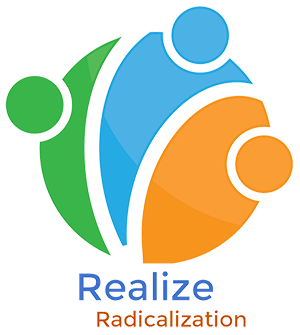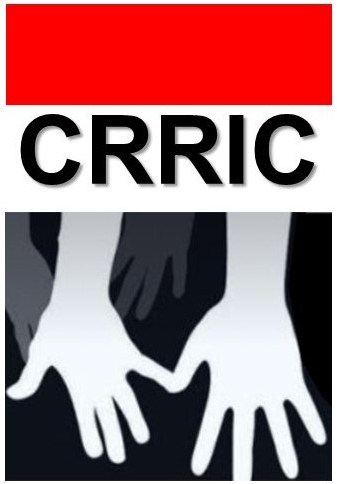A National Project for a Media-literate Society
Since the beginning of the full-scale invasion, Ukraine has begun to pay attention to the level of media literacy in its society. Understanding how detrimental Russian propaganda is and what impact it could have on Ukrainians, the government has implemented many methods for improving people’s critical thinking in terms of disinformation and manipulation in the media. For instance, many free courses, trainings, and lectures are taking place even now, more than a year after the war broke out.
However, to fight disinformation on the state level, Ukraine has begun much earlier; in 2010, the first state document in the field of media education was adopted, the Concept of the Implementation of Media Education in Ukraine. A few years later, in 2013, the order About the introduction of studying the course “Fundamentals of Media Literacy in Educational Institutions” was issued to continue the experiment on the introduction of media education into the educational process of institutions.
Since those times, Ukraine has gradually improved the integration of media literacy in the school system. For instance, in 2016, the Presidium of the National Academy of Pedagogical Sciences of Ukraine approved the new edition of the Concept of the Implementation of Media Education in Ukraine. As it was explained, “The aggravation of the need for media education and the renewal of the Concept of its implementation are also connected with the unfolding of information and psychological warfare, the escalation of aggression, and the seizure of the territory of Ukraine”. Therefore, the Russian invasion of Ukraine was among the reasons for the further development of media education in the country. One of its state projects is Filter, the national media literacy project that works with the Ministry of Culture and Information Policy of Ukraine to increase Ukrainians’ resilience to misinformation.
Filter, the national media literacy project, was founded in 2021. The project team consists of Taras Shevchenko, Deputy Minister of Culture and Information Policy for European Integration; Hanna Krasnostup, Acting General Director of the Directorate for Information Policy and Information Security of the Ministry of Culture and Information Policy of Ukraine; and Valeria Kovtun, Founder and Head of Filter. The main idea and goal of the Filter is to unite the efforts of the state, the public sector, international organizations, and the media community to improve the level of media literacy among Ukrainians.
Aiming to raise public awareness of the importance of developing media literacy skills, Filter uses different instruments to provide opportunities for creating a responsible and safe media environment. First of all, Filter strives to raise awareness in society from an early age. Thus, on their website, the project provides schools and teachers with materials and guidelines about media literacy. There could also be different lessons about cyber safety, stereotypes, fakes, and media policies. Separate materials are also dedicated to the universities. For instance, teachers and students can use online guides or educational materials from different online courses. For young and experienced journalists, there are key tips on physical, informational, and psychological safety and explanations of other topics.
Another effective tool that Filter uses to promote conscious news consumption is a list of reliable media sources in each region of Ukraine. The interactive map depicts Ukraine, and by choosing a certain region, users can open a list of established sources for obtaining information.
Filter is also known for its tests and games. One of them can be found on the website. However, the biggest event, involving all of Ukraine, was held in 2022, when everyone was able to participate in the National test on media literacy. During Global Media Literacy Week, the national project Filter conducted a national media literacy test. Anyone who wanted to test themselves to see if they knew how to fight fakes and distinguish enemy propaganda was able to take part in the test. A total of 32,586 participants took part in the media literacy test, 17,555 of whom managed to answer all the questions.
The huge attention the project also pays to its social media To illustrate, Filter actively uses TikTok and Instagram, where they try to involve youngsters and schoolchildren. For both platforms, they create different content, creating articles and explainers for Instagram and debunking myths on TikTok.
It is worth mentioning that the experience of Filter is highly recognizable abroad. Valeria Kovtun, founder and head of Filter, repeatedly spoke abroad, presenting the project and its main achievements to foreign colleagues.
In addition, the result of The Media Literacy Index 2023 of the European Policies Initiative (EuPI) could become a confirmation that the work of the Filter is also effective within the country. Divided into 5 clusters, the ranking placed countries in different groups, from the most resilient to the least resilient. In keeping with the results, Ukraine ended up in the 36th position among the 47 possible, being placed in the last place in the 3rd cluster. However, although the result is far from being the best, in comparison with the year 2022, Ukraine has improved its media literacy index; in 2022, Ukraine was placed in the first place in the 4th cluster. In this group, Ukraine is joined by such European countries as Italy, Greece, and Slovakia.
Despite the constant Russian propaganda in the middle of the war, Ukraine still manages to improve the media literacy of its citizens. The results are clear: after a year of hostilities, Filter, along with the Ministry of Culture and Information Policy of Ukraine, are paving the way toward a protected society with high critical thinking and aware news consumption.





